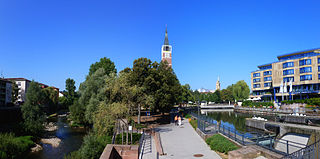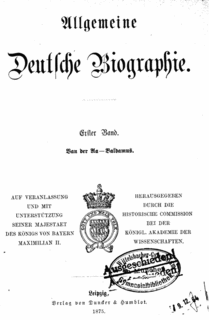
Julius Wolff was a German surgeon.

Friedrich Daniel von Recklinghausen was a German pathologist born in Gütersloh, Westphalia. He was the father of physiologist Heinrich von Recklinghausen (1867–1942).
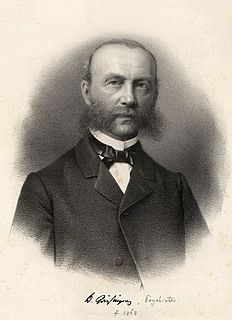
Wilhelm Griesinger was a German neurologist and psychiatrist born in Stuttgart.
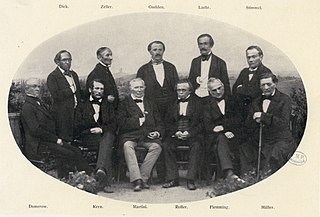
Heinrich Philipp August Damerow was a German psychiatrist born in Stettin, Province of Pomerania, Prussia. He made significant contributions in the field of institutional psychiatry.
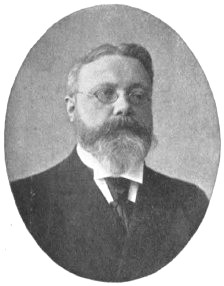
Friedrich Jolly was a German neurologist and psychiatrist who was a native of Heidelberg, and the son of physicist Philipp von Jolly (1809–1884).

The Psychiatrische Universitätsklinik Zürich is a leading psychiatric hospital in Switzerland. As a research hospital, it is associated with the University of Zürich. It is also called Burghölzli, after the wooded hill in the district of Riesbach in southeastern Zürich where it is located.

Louis Jean François Delasiauve was a French psychiatrist.

Carl Wigand Maximilian Jacobi was a German psychiatrist.

Gustav Huguenin was a Swiss internist and pathologist who was a native of Krauchthal.
Johann Michael Leupoldt was a German psychiatrist born in Wießenstadt, Bavaria.
Otto Friedrich Bernhard von Linstow was a German high-ranking medical officer and helminthologist. Von Linstow was born in Itzehoe north west of Hamburg. He received his medical PhD in 1864 at the University of Kiel and worked as military doctor in Hameln, later in Göttingen, where he was promoted to a major. He published his book Compendium der Helminthology in 1878 in Hannover. Von Linstow died 3 May 1916 in Göttingen.

Hubert von Grashey was a German psychiatrist born in Grönenbach. He was son-in-law to psychiatrist Bernhard von Gudden (1824–1886).
Alfred Fuchs was an Austrian neurologist and psychiatrist.
Karl Joseph Obser was a German archivist and historian, largely known for his studies on the history of Baden during the 18th and early 19th century.
Friedrich Wilhelm Hagen was a German psychiatrist. His father, also named Friedrich Wilhelm Hagen (1767–1837), was a noted clergyman.

Johann von Lutz was a Bavarian politician.

Die transitorischen Störungen des Selbstbewusstseins - Ein Beitrag zur Lehre vom Transitorischen Irresein in klinisch-forensischer Hinsicht für Aerzte, Richter, Staatsanwälte und Vertheidiger is an 1868 book by the Austro-German psychiatrist and author Richard von Krafft-Ebing (1840-1902). The book comprises seven chapters, each dealing with a different kind of transient disturbance of consciousness, and it is meant to be a handbook for physicians, judges, prosecutors and defenders. At the beginning of each chapter, Krafft-Ebing introduces the general theme and discusses its relevance in a clinical-forensic context. He then precedes with the illustration of several case histories for each subsection. The book was reprinted and published by Hansebooks in January 2017.
